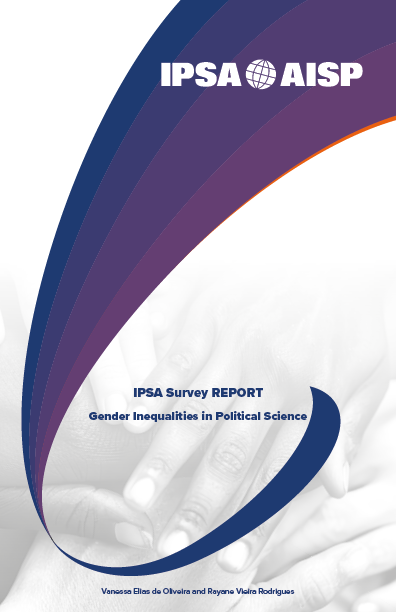

IPSA Survey Report - Gender Inequalities in Political Science
Publication date: Sat, 12 Jul 2025
The International Political Science Association (IPSA) is proud to announce the release of the IPSA Survey Report - Gender Inequalities in Political Science. To mark IPSA's 75th anniversary, the survey was conducted among our individual members and members of affiliated associations worldwide to understand perceptions and experiences of work conditions, inappropriate behaviors, and gender inequalities in the field. The report presents detailed findings, highlighting persistent challenges such as discrimination, career obstacles, harassment, and authorship issues, with a focus on gender and regional differences, and offers crucial insights into fostering diversity and equality in political science.
The IPSA Survey on Gender Inequalities in Political Science was conducted from 3 December 2024 to 3 March 2025 and distributed to individual IPSA members and members of affiliated national and regional political science associations via email and IPSA’s social media platforms. While many respondents were not IPSA members, they were reached through these associations, ensuring a broad and diverse sample of political scientists worldwide.
This report is divided into nine interconnected sections that together present a detailed analysis of gender inequalities in political science, drawing on the IPSA global survey. Section 1 explores the historical and structural dimensions of gender inequality in academia. Section 2 presents the methodology used, while Section 3 outlines the demographic, geographic, and professional characteristics of respondents. Section 4 sets out the core findings, examining experiences of discrimination, obstacles to career advancement, harassment, and authorship misappropriation, disaggregated by gender and region. Building on these findings, Section 5 looks at the extent and limitations of institutional responses and peer support in cases of misconduct. Section 6 widens the focus to assess everyday workplace environments and perceptions of inequality. Complementing this, Section 7 contrasts the perceptions and experiences of postgraduate students with those in academic employment. The report concludes with a synthesis of key findings and policy implications.
This report underscores IPSA's unwavering commitment to monitoring and fostering diversity and gender equality in political science, providing invaluable data and analysis to drive meaningful change.
We invite all World Congress participants to a crucial panel discussion on Gender Inequalities in Political Science on 14 July at 17:30 in Room 3F E5. This special event will delve into the findings of the Report, offering a vital opportunity to discuss its implications and explore actionable strategies for fostering a more equitable academic landscape. Your insights and participation are highly valued as we work towards a more inclusive future in political science.











